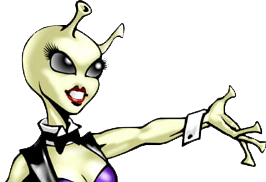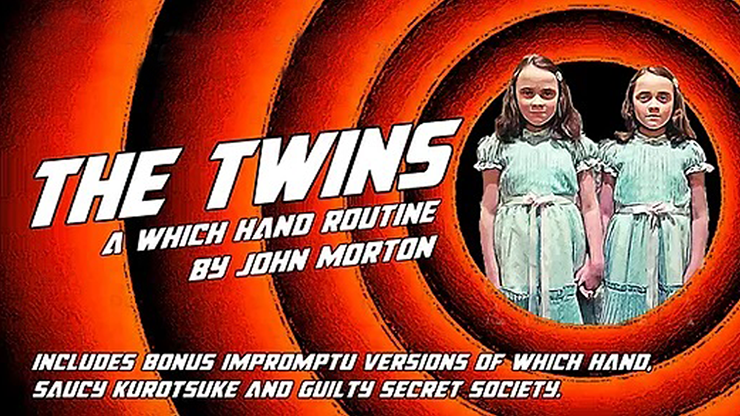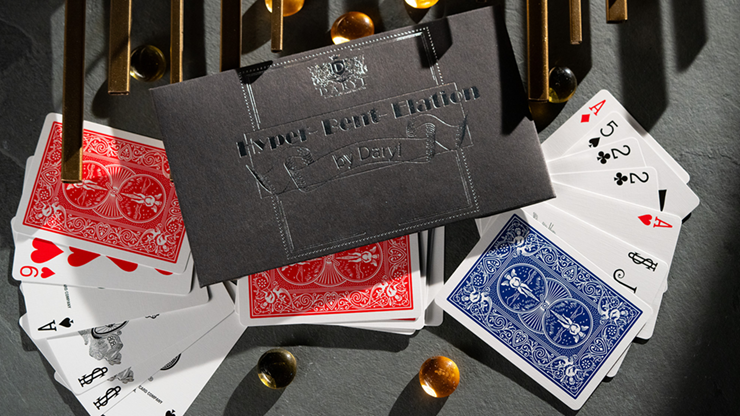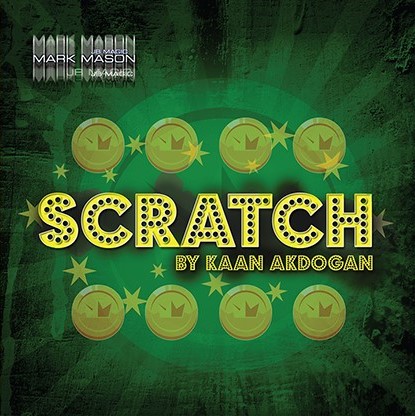Helter Shelter
Optical Illusionist
Fire Cat Studios
(Based on 1 review)

Pages 36
Reviews
(Top ▲)
This little booklet concerns what is often referred to as "the Razor Blades," an effect in which the performer apparently swallows a handful of double-edged razor blades, followed by a length of thread. Moments later, the thread reappears from the performer’s mouth; lo and behold, all of the blades have magically strung themselves onto the thread!
Over a year ago, when I decided to include the Razor Blades in one of my shows, I searched my bookshelves and file cabinets in the hope of finding some interesting approaches and solid technical advice from performers who had worked with this effect. I came up empty-handed. (Reminder to self: Always check Tarbell.) Expanding my search to the local magic shop, I purchased a set of "Vest-Pocket Razor Blades." The instruction sheet offered little in the way of inspiration or useful advice. So, after much experimentation, I devised my own handling for the effect.
A few months after the show closed, I ran across Helter Shelter by Bizarro. I thought it might offer magicians a source of fresh ideas and helpful advice about this effect. Unfortunately, I was mistaken.
The booklet begins with a section titled "Afterthoughts," which includes the following disclaimer:
"So hey, don’t hurt yourself. This is my official legal way of saying I can't be held liable if you do something stupid. By purchasing this book you accept all responsibility for your own actions and decisions...foolish as tho' they might be. Perform any of these at your own risk and N*Joy!!"
The above paragraph is a good indication of what awaits the reader. The text is a slapdash, haphazard mess. At 31 pages, the booklet isn't long, but negotiating the obstacle course of ridiculous slang, misspelled words, twisted grammar and tiresome attempts at humor makes the reading experience seem much, much longer. Here's a brief sample:
"You look like you have much skill with your tongue and waaay too much time on your hand. This is the basics of the illusion as I first performed it. There are a few flaws that I have since fixed and still use in close-up situations."
Does that mean the flaws are still useful, but only in close-up situations?
For the reader who manages to get through the text, the rewards are few. Several methods are explained. Most can be found in more coherent form elsewhere (e.g., The Tarbell Course, and the instruction sheet for "Vest-Pocket Razor Blades"). In addition, the reader will be treated to preposterous advice:
"...[T]here is the issue of how gutsy you want to be. Some people will spend the time dulling down their blades because they are afraid of minor cuts they probably won't get. Personally I use sharp razors all the way around. Then again, I'm not right in the melon."
If the text in this booklet were printed at a normal size instead of sixteen-point type, and all of the useless digressions and jokes were removed, the relevant information would probably fit on a few pages. If one were to continue by removing all of the words that were spelled incorrectly by mistake or in a misguided effort to seem hip and edgy, along with the sentences that are not sentences at all, there would be practically nothing left.
When the producers of an item for sale can't be bothered with getting it right, is the product worthy of anyone else's time and money? The star rating I'm giving this item should convey my answer to that question.
Over a year ago, when I decided to include the Razor Blades in one of my shows, I searched my bookshelves and file cabinets in the hope of finding some interesting approaches and solid technical advice from performers who had worked with this effect. I came up empty-handed. (Reminder to self: Always check Tarbell.) Expanding my search to the local magic shop, I purchased a set of "Vest-Pocket Razor Blades." The instruction sheet offered little in the way of inspiration or useful advice. So, after much experimentation, I devised my own handling for the effect.
A few months after the show closed, I ran across Helter Shelter by Bizarro. I thought it might offer magicians a source of fresh ideas and helpful advice about this effect. Unfortunately, I was mistaken.
The booklet begins with a section titled "Afterthoughts," which includes the following disclaimer:
"So hey, don’t hurt yourself. This is my official legal way of saying I can't be held liable if you do something stupid. By purchasing this book you accept all responsibility for your own actions and decisions...foolish as tho' they might be. Perform any of these at your own risk and N*Joy!!"
The above paragraph is a good indication of what awaits the reader. The text is a slapdash, haphazard mess. At 31 pages, the booklet isn't long, but negotiating the obstacle course of ridiculous slang, misspelled words, twisted grammar and tiresome attempts at humor makes the reading experience seem much, much longer. Here's a brief sample:
"You look like you have much skill with your tongue and waaay too much time on your hand. This is the basics of the illusion as I first performed it. There are a few flaws that I have since fixed and still use in close-up situations."
Does that mean the flaws are still useful, but only in close-up situations?
For the reader who manages to get through the text, the rewards are few. Several methods are explained. Most can be found in more coherent form elsewhere (e.g., The Tarbell Course, and the instruction sheet for "Vest-Pocket Razor Blades"). In addition, the reader will be treated to preposterous advice:
"...[T]here is the issue of how gutsy you want to be. Some people will spend the time dulling down their blades because they are afraid of minor cuts they probably won't get. Personally I use sharp razors all the way around. Then again, I'm not right in the melon."
If the text in this booklet were printed at a normal size instead of sixteen-point type, and all of the useless digressions and jokes were removed, the relevant information would probably fit on a few pages. If one were to continue by removing all of the words that were spelled incorrectly by mistake or in a misguided effort to seem hip and edgy, along with the sentences that are not sentences at all, there would be practically nothing left.
When the producers of an item for sale can't be bothered with getting it right, is the product worthy of anyone else's time and money? The star rating I'm giving this item should convey my answer to that question.









